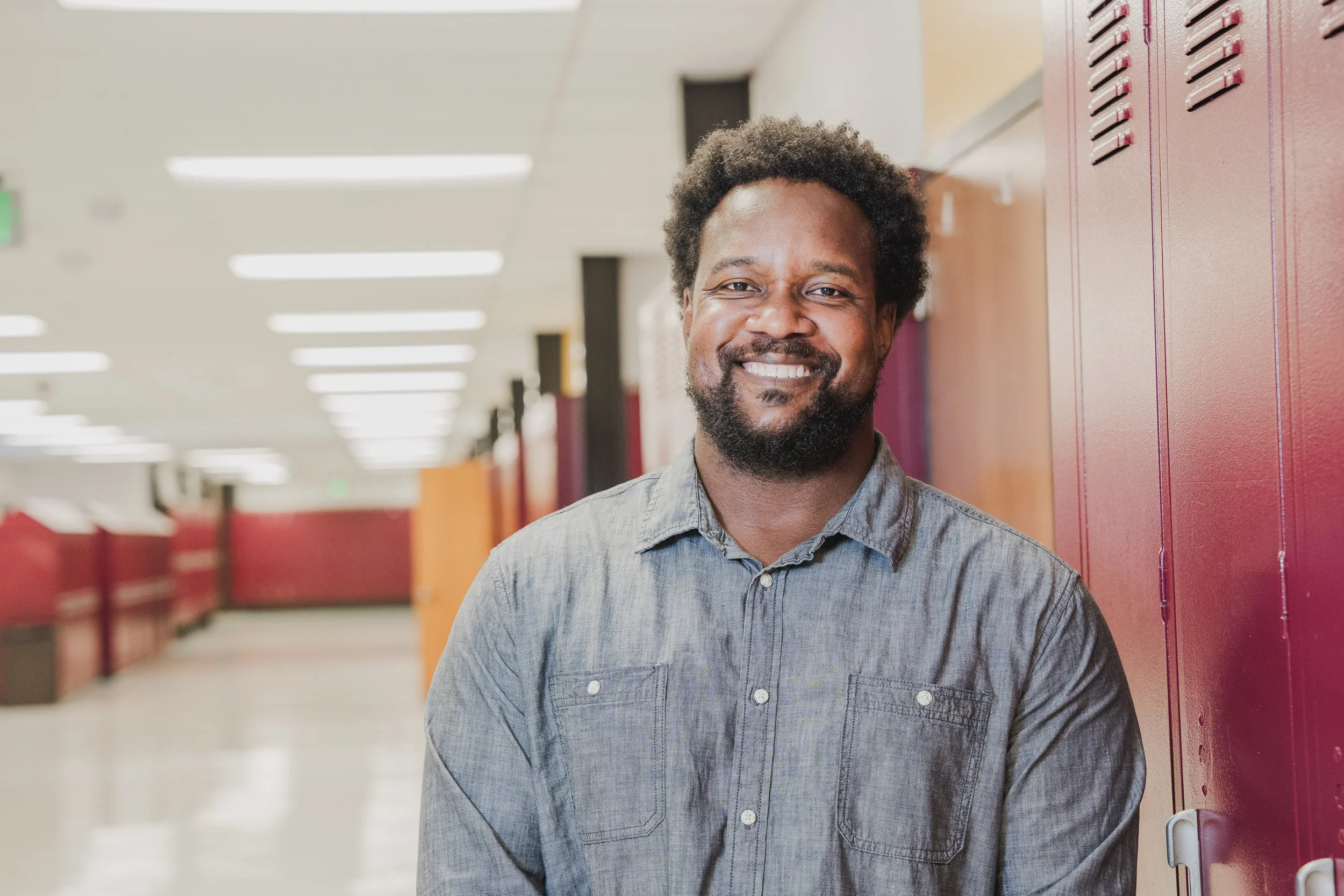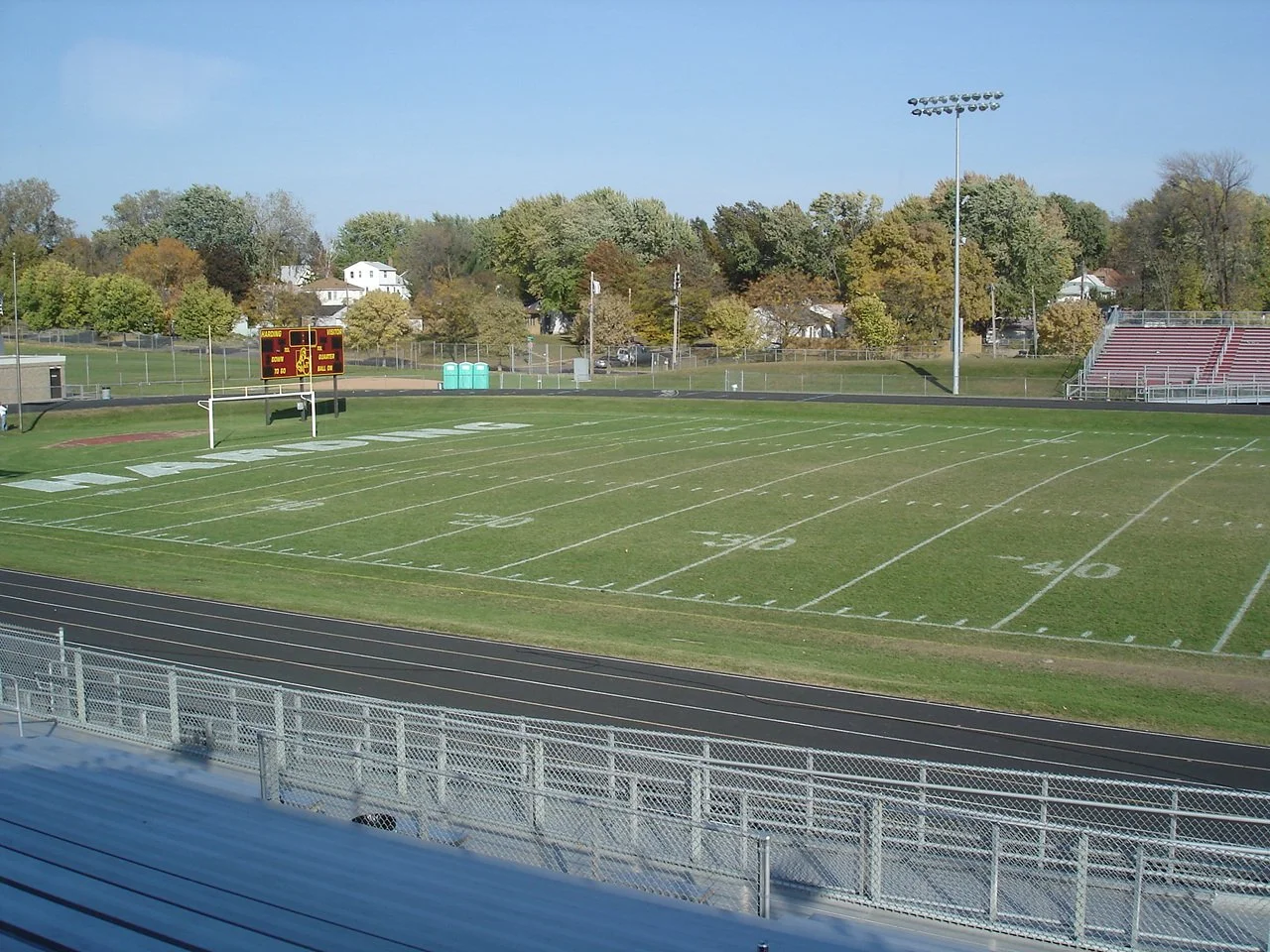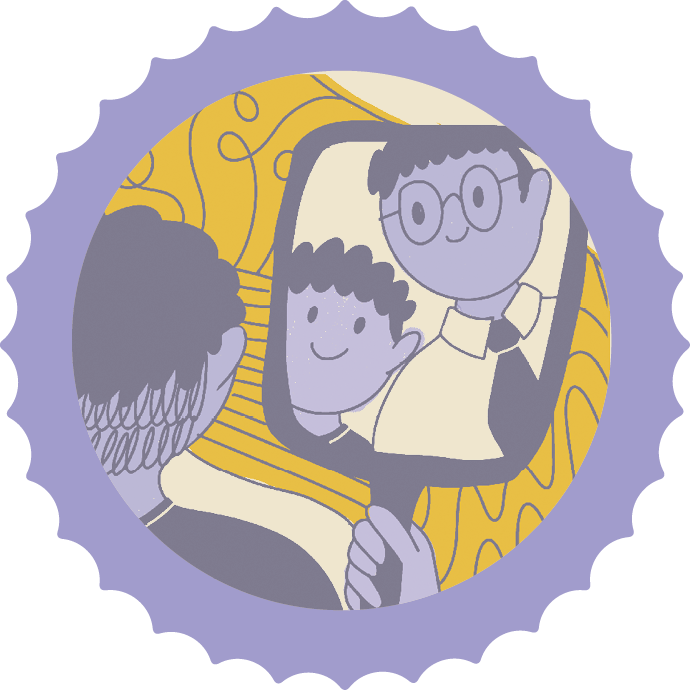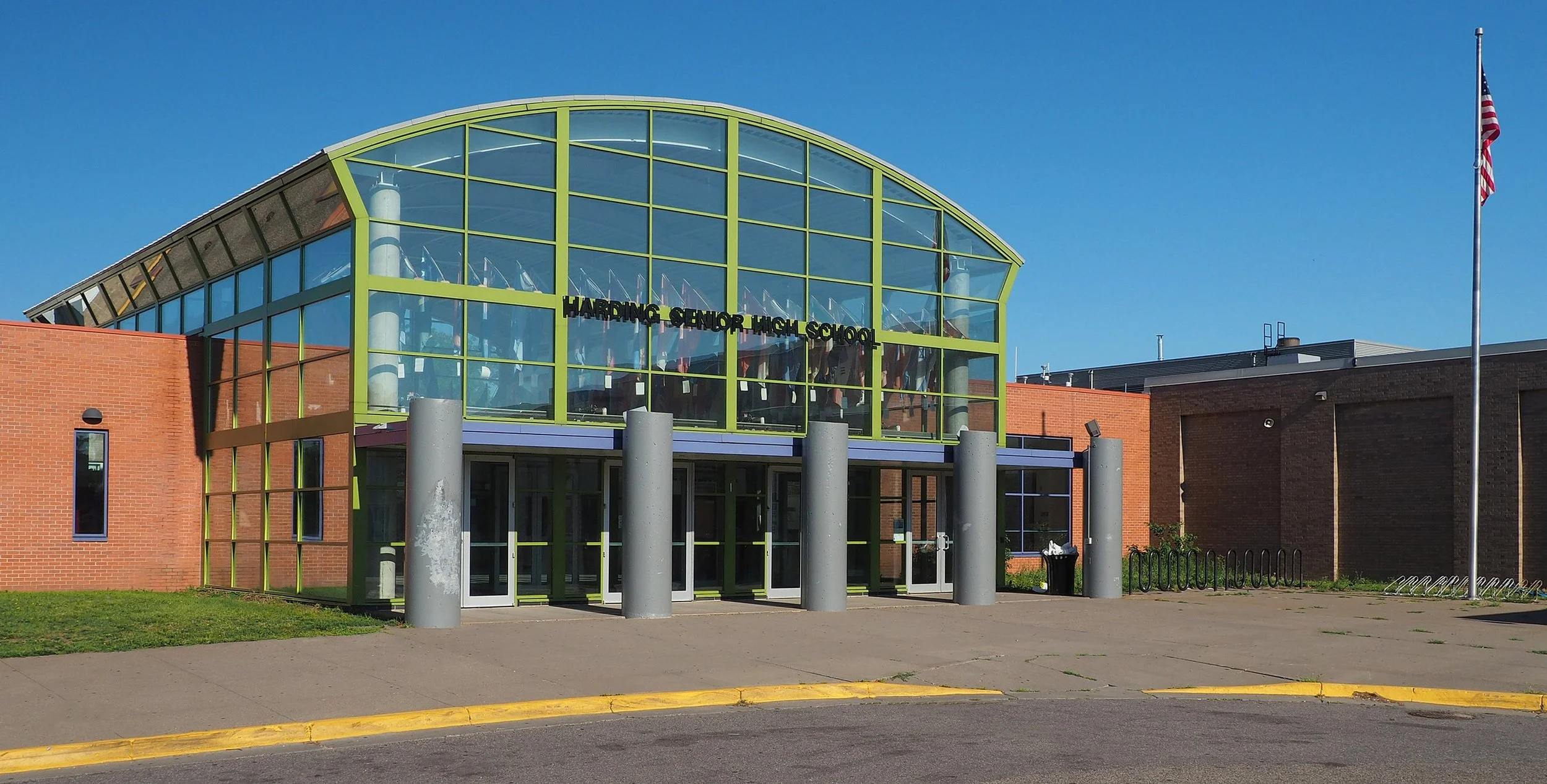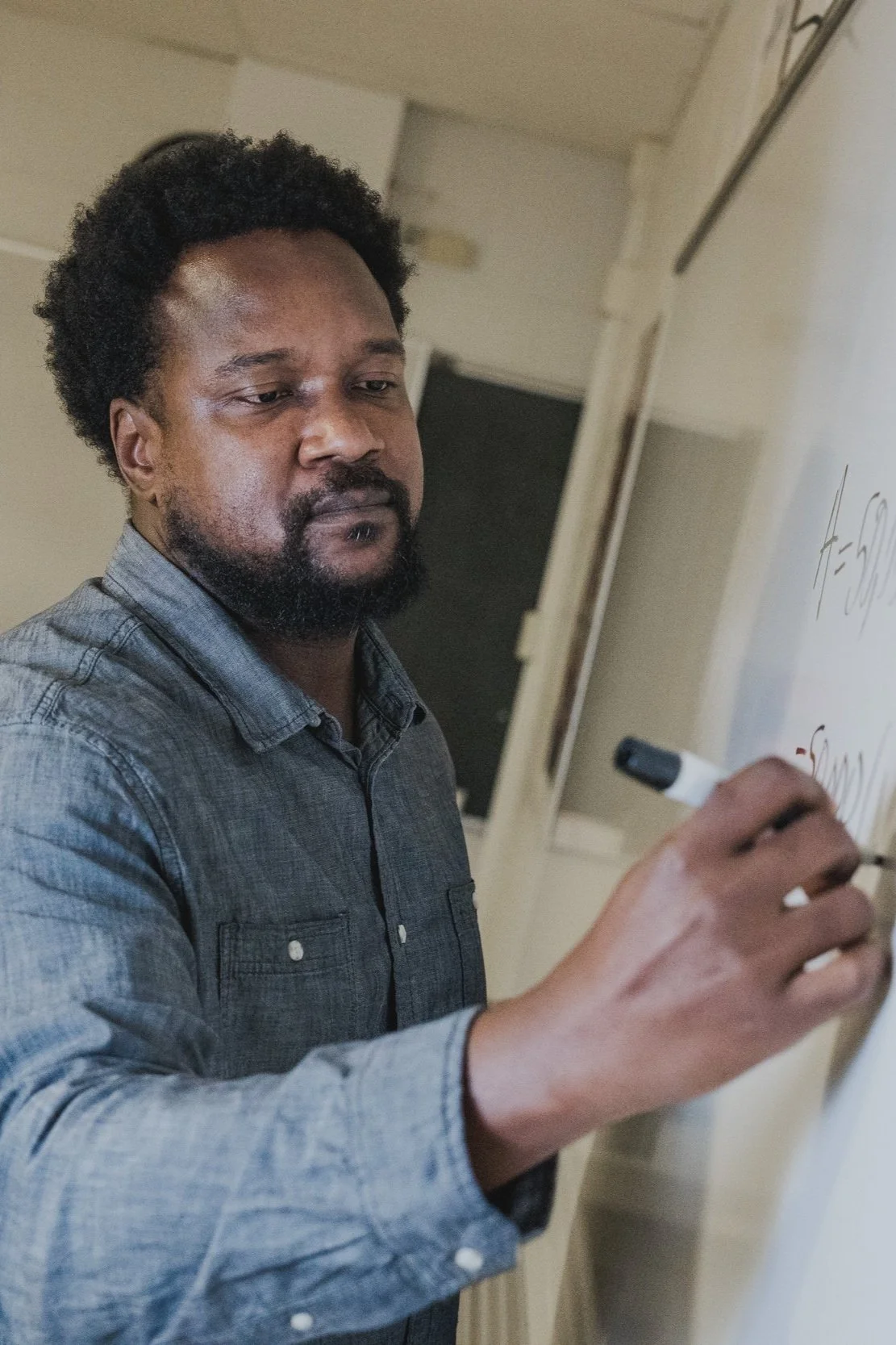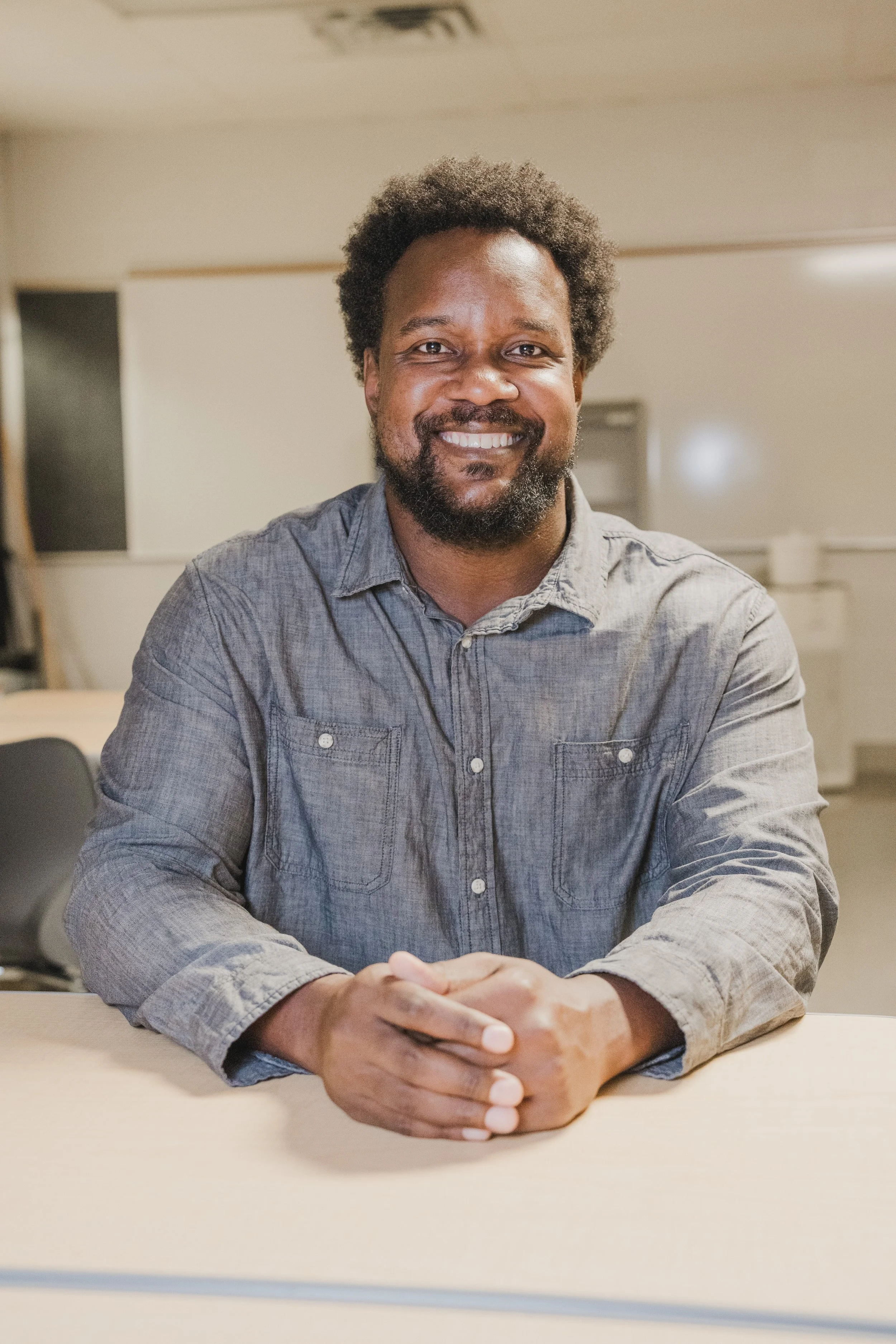Teacher Interview: Michael Houston
The Heart of Teaching: Michael Houston on Community, Connection, and Change
Hi, Michael, I'm so glad that you're here with me today. I'd love it if you'd start off by introducing yourself, your name, what you teach, and how long you've been doing that.
My name is Michael Houston and I'm a math teacher at St. Paul Harding High School teaching Algebra 2 this year and Accelerated Geometry. I just finished my 20th year in the profession.
20 years? That's incredible! Congratulations! Did you always see yourself becoming a teacher?
I actually did not. I actually fell into this profession by accident. Long story short, I transferred to Concordia from the U of M and I transferred to Concordia because it was a much smaller environment for me. I figured I could be successful and the main reason I transferred to Concordia is because they were giving a free laptop.
And at that time, I was poor, I didn't have any technology. I wanted to go there for that reason. In addition to being at a small campus. I went there and at that time the majors that they had in mathematics were business, finance and education. I just couldn't imagine myself being in a cubicle for the next 40 years of my life being either in business or finance.
I had a love-hate relationship with education at that time. But I knew that teaching just provided more opportunities in that profession than the others.
How did you know that teaching provided more opportunities?
Well, I played football in high school, so I knew that I could get opportunities in the coaching route. I knew that there were some opportunities, [with teaching] where I can also delve into other hobbies that I found interesting to me. Even though I had a love-hate relationship with education, [teaching] was the only thing that I knew coming from my own educational journey. So, you know, since that was most familiar for me, that's what I decided to pursue.
When you decided teaching was something you were interested in at Concordia, what did that pathway sort of look like for you? I know it's different for every person, but do you have a couple steps or a path that you pursued?
When I got to Concordia, again, because of my professor at the time who was really the major influence of my education, the pathway was taking all the math classes that Concordia offered and also I had to take education classes that included doing some observations in classrooms and being new to Minnesota at the time.
I want to say it was my third year being in the state [at the time]. I wasn't really familiar with the schools in the city. So one of my professors was actually a teacher at Harding High School and she taught a high school methods class. That was the only school that I knew how to get to from Concordia and from where I lived. We had to do certain hours and then by the time I had to do student teaching, I decided to request Harding High School.
I was able to get permission to be a student teacher at Harding High School and then my cooperating teacher ended up going on maternity leave. I was able to become a long-term sub for her. Then at the end of that year, I was offered a position and I've been there ever since. The pathway that I took was just taking all the math and education classes that I could afford to offer.
View of Bakken Field, used by the Harding football, soccer, and track teams.
You mentioned a professor that inspired you, but are there any other teachers or mentors that have inspired you along this journey?
Mainly it was my Concordia math professor. Again, when I got to Concordia, it was a smaller environment, which I appreciated and they gave me a laptop. I remember vividly being placed in a math class called Abstract Algebra. At that time I thought it was a basic algebra class. I'm like, okay, I've done algebra before I could do this. But actually Abstract Algebra is the study of algebra, the proving of algebra. So actually that was one of the highest math courses at Concordia. I remember my first day there and I just looked like a fish out of water. I was confused. And my math professor at the time just immediately knew I was in the wrong class. And so I was placed in calculus with the same professor, Dr. Krueger.
I just remember him coming into the classroom. He had so much excitement, passion about the subject that he was teaching. And it was higher level mathematics. Now, most of the people that I come across really do not like mathematics. This is higher level mathematics that I would never apply in real life, but he made it so exciting and made it so infectious that I decided I wanted to be like him. What I appreciate about Dr. Krueger the most was that, again, he brought that passion into a subject like mathematics, but he brought community into the classroom.
It wasn't until I did some self -reflection after I was named Teacher of the Year that community was the sole reason for that I was able to get to where I am today. And he's made every student in the classroom feel like they belong, whether they were strong math students or not. And so that was the main reason, the sole reason, in addition to me not wanting to be in a cubicle for 40 years, that I decided to go into education because I wanted to be just like him and create that community within my classroom.
Michael Houston, BA ‘04 was named the 2023 Minnesota Teacher of the Year on May 7, 2023.
“It wasn’t until I did some self-reflection after I was named Teacher of the Year that community was the sole reason for that I was able to get to where I am today.”
Can you talk a little bit about what community building looks like for you? How do you engage in community building as an educator?
Teaching is community building
In my classroom, I want all students to feel like they have a voice and I want all students to feel like they are seen. In a classroom, we have just a whole mixture of personalities. You have students that are confident in themselves and want to speak up.
And you have those students that aren't as confident in themselves or are really quiet. I want my classroom to be a space for all students to thrive and feel like they belong in.
What I try to do is I really get to know my students. I know that sounds really cliche, but I really pride myself on trying to get to know all of my students' names within the first week of school. I try really hard. I try to make associations with their name and their faces. But then I just ask them throughout a lesson or when I'm greeting them at the door, I just ask them a question about their day or a topic that they want to kind of get into.
We have time in the classroom to really get to know students. I try to do that with my curriculum as well. Try to figure out what they like, what they want to talk about and try to incorporate that into my lessons. As well as bringing humor because, you know, humor kind of drops down that barrier for many people. I want them to feel like they belong in the classroom and they're valued. That's what I've tried to do for 20 years.
What are some of the most rewarding aspects of teaching for you personally?
I get many students in high school, so they've had eight to nine years of math and many of them develop some sort of math phobia, with the subject. When students trust in me to help them understand math and how to find math useful. And when they actually start to build that confidence and see that success and a subject that they really hated all their lives, for me, that's the most rewarding. I want to say over my 20 years, I've been able to have that impact on many of the students that I serve in becoming more confident math students.
Particularly since COVID, I kind of revamped my algebra two curriculum in a way that would incorporate more financial literacy. Because one of my pet peeves is when students would ask when we are going to use this in real life. As someone that has valued education, I just love to learn in general. It doesn't need to be relevant or anything, but I know a lot of the kids that we serve today want that relevancy. So I started to incorporate a lot of financial literacy into my curriculum. I noticed more engagement in my classes as well because I am actually making math content relevant and helping them, especially with understanding personal finance and financial literacy. Some other things that I find rewarding is when I get a thank you or when I get an “aha” that they understand a concept or just receiving a small thank you note.
The East St. Paul community is one of the most gritty, resilient, but thoughtful communities I've been in over the last 20 years. I love just getting those thoughtful notes or gifts from students, thanking them for making them feel comfortable in a classroom or helping them actually enjoy mathematics. To me, that's probably one of the most rewarding aspects of my job.
Front of Harding High School in St Paul, Minnesota.
“And when they actually start to build that confidence and see that success and a subject that they really hated all their lives, for me, that’s the most rewarding. ”
What does it look like to be a mentor for kids today?
When I first started, I just thought I would be a teacher and a coach, to be honest with you. I coached football too in my first year. Over the years I've seen that my role has changed. I've become, not only a coach, I've become an advisor, become a mentor. in many cases, a therapist and in rare cases, a father figure.
What I like about teaching is that we wear these different hats because our students have different needs. Some of the students I serve, they just want to learn the math that will help them get into college and go that pathway. There's some that just want to feel like they matter. They want to feel like they are loved. I try to provide that for them as well. There are a lot of different roles that teachers play nowadays.
That is what's powerful about teaching that you can, that you have so many different roles that you play in the students' lives that can impact them in a way that would change the trajectory of their lives, I think is really powerful.
When you do see a kid in your classroom who maybe is starting to struggle academically, are there any approaches or things that you think about now that you're in the teacher role?
I certainly share with them that if you're struggling in school, it doesn't define you. Because I graduated 1 .77, it didn't define me at all. Because I failed classes before it didn't define me. Because I failed out of the U of it didn't define me, right? It's when I experienced each of those setbacks I had to regroup and find another pathway to get where I wanted to go. That's something that I share with those students that are struggling academically because I want to be clear that I'm compassionate, but I'm also going to hold my students to a high standard as well.
If a student isn't doing well in the course, I'm going to let them know, I'm giving you my all, and I'm going to need that in return. If you do fail, I still love you. And I actually tell them that. If you fail, I still love you. It doesn't define you, but I'm trying to help you prepare for the world outside of the classroom. Hard work will get you to a place where you want to be if you want to reach your goals.
“If a student isn’t doing well in the course, I’m going to let them know, I’m giving you my all, and I’m going to need that in return. If you do fail, I still love you. And I actually tell them that. If you fail, I still love you. ”
Despite the challenges that we often hear about teaching, what keeps you motivated and in the profession?
There are a lot of challenges that we face as you're aware of. To be honest, it's just the students, it's just the kids because I want to be the teacher that I wanted and needed when I was in school. Our students deserve that, especially nowadays. I believe school is a lot harder nowadays than it was when I was in school because of social media and all the political stuff is going on. I just love being around the students. They make me laugh. They keep me young. They keep me present. I feel like I'm just that person that can help them navigate this tough world that we're in.
What advice would you give to aspiring teachers or maybe those who haven't considered their career choice yet?
I would tell a new teacher that I'm going to be real with them, I'm going to say it is going to be the most enjoyable yet frustrating, but rewarding profession that they will get into. I remember my first few years of teaching I wanted to impact every student that came across and that's just not the case. You can impact the student academically, you can impact the student emotionally, you can impact the student mentally, spiritually. There's more than one way to have an impact on the student's lives more than just academics and taking tests.
It's just about finding your strengths and honing those in on those students and making sure that the students feel like you care about them because a student is not going to trust you or really be invested in what you have to say if they don't feel like they care about you. Taking those first few days of school, doing those team building activities, knowing your students by name, getting to know them personally is the best approach for new aspiring teachers.

